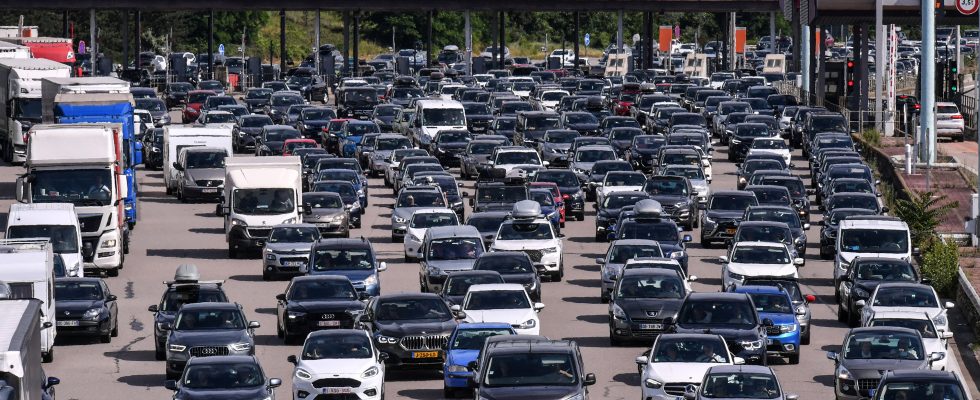Bad news for highway and airport concession companies. Despite their opposition, the finance bill, presented this Wednesday, September 27 to the Council of Ministers, does include a levy on surplus profits. The exact terms of this tax are not yet known, but it will save the State several billion euros over the coming years.
The government first considered reducing the duration of the concessions, most of which will expire between 2031 and 2036. But the Council of State warned last June that this was a risky bet. Rather than embarking on a long legal battle without being sure of winning it, Bercy therefore preferred to create this levy on the colossal profits that the concession companies will reap in the coming years. “We want to recover the excess profits that were made by the highway companies. We clearly saw that their profits were higher than expected,” explained Bruno Le Maire on September 12. According to an independent study carried out at the request of the Senate, the dividends of these companies between 2022 and the end of the contracts could reach the sum of 40 billion euros…much more than the eight billion that would be taken by the State. At the origin of this financial windfall: ever higher toll rates, with a record increase of 4.75% last February, and the reduction in the corporate tax rate, which went from 33% to 25%. % in 2018.
Punitive for users
Five airports will be affected by this tax – Orly, Roissy and the airports of Lyon, Bordeaux and Nice – and all motorways. The giants Eiffage and Vinci will therefore be particularly affected. The first manages more than 2,300 kilometers of motorways out of 12,300, and the second operates more than a third through its subsidiary Vinci Autoroutes. The other branch, Vinci Airports, operates Lyon-Saint Exupéry airport and owns 8% of the capital of Aéroports de Paris. A very lucrative activity: Eiffage and Vinci represent 32 of the 40 billion in dividends mentioned above.
For these companies, which would see shareholder dividends decline, such profits only compensate for years of debt and investments. In 2005, Matignon transferred the operation of the motorways to them to get rid of a debt of 16.8 billion euros. But above all, they argue that this measure would punish users by increasing the price of tolls and plane tickets. The Aéroports de Paris group has already warned that 75% of this new cost would be passed on to airlines, and therefore to customers’ wallets. “This taxation would result in an increase in prices and a reduction in investments, which is the opposite of what should be done to decarbonize,” said Pierre Coppey, CEO of Vinci Autoroutes, Release. Just like the Union of French Airports and the Aéroports de Paris company, also opposed to the project, Vinci is banking on the examination of the budget in Parliament to reduce the tax. While preparing to challenge the principle if necessary in court.
